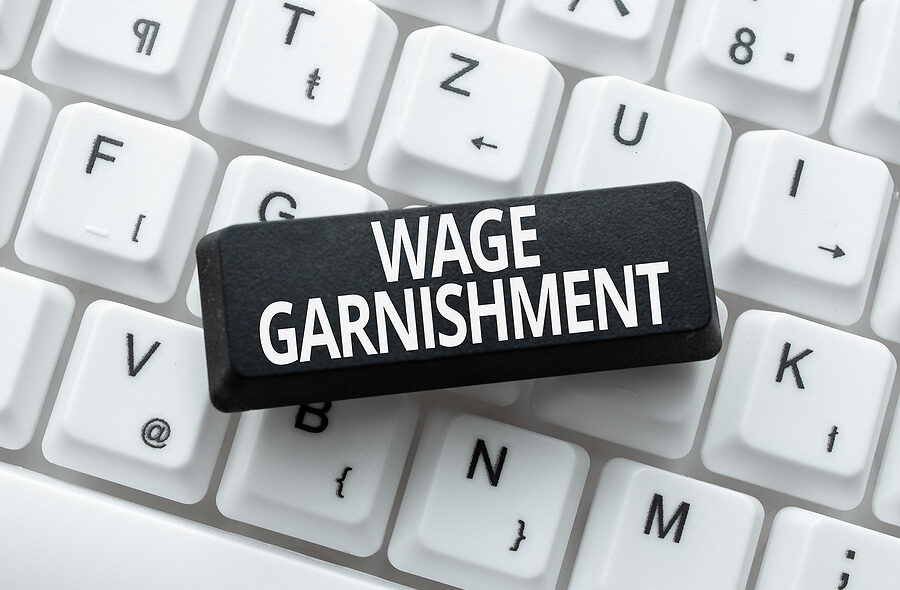Wage garnishment is a legal process in which a person’s earnings are required by court order to be withheld by an employer for the payment of a debt.
Filing for bankruptcy in Florida puts an automatic stay on wage garnishment, which immediately stops Florida wage garnishment. The automatic stay lasts for as long as the bankruptcy. With the automatic stay in place, you will be able to take home your entire paycheck.
No one wants to have his or her wages garnished. Unfortunately, a wage garnishment order is often the end result of a collections action. Once the garnishment order is in place, a portion of the consumer’s paycheck will be automatically withdrawn to satisfy a debt. The good news is certain steps can be taken to stop a wage garnishment.
One important thing to keep in mind is creditors can only garnish a certain percentage of the consumer’s paycheck. Federal law dictates that the amount garnished from a person’s wages cannot be more than 25 percent (25%) of his or her disposable income or the amount taken that by which the person’s take-home pay exceeds 30 times the federal minimum wage, whichever of these two figures is less.
The law also dictates the specific steps a creditor must take to be able to garnish the consumer’s wages to satisfy the debt. Without these protections, a creditor could simply take money out of the person’s bank account. The actual process first starts with the creditor or third-party debt collector filing a lawsuit to formally collect the debt. If this lawsuit is successful, the creditor or collector will receive a judgment against the creditor. This legal judgment gives the creditor the authority to then ask the court to issue a wage garnishment order, allowing them to satisfy the debt by garnishing the consumer’s wages. Once signed, this order is sent to the consumer’s employer to start the garnishment.
The worst thing a consumer can do is to ignore a collection action, thinking that it will go away. Once a lawsuit is filed, it is important that the consumer answer the complaint and appear in court on any court dates, especially if he or she is contesting the debt and the garnishment. If not, the court will enter a default judgment on behalf of the creditor, which will make garnishing the consumer’s wages much easier.
One exception does exist when it comes to wage garnishments. Federal law dictates that the consumer’s wages, as well as his or her social security benefits, can be garnished to pay student loan debt and back taxes owed. The U.S. Department of Education and IRS are given authority under federal law to garnish the consumer’s wages without a court judgment or even filing the lawsuit. No official garnishment order is needed for either entity to garnish a consumer’s wages.
A person can take certain steps to stop a wage garnishment before it even starts. One thing a consumer can do is to work directly with the creditor to negotiate a payment plan to pay down the debt in lieu of a wage garnishment. Many times, creditors prefer this be done before the collection action is even initiated, saving them the legal fees associated with starting a legal proceeding. Payment plans also allow the consumer to set a reasonable amount for a monthly payment, one that will fit with his or her budget. Negotiating a payment plan once the garnishment order has been issued can be a little harder, so it is recommended this action be taken before that order is issued.
If the wage garnishment order has already been issued, the consumer can try to challenge the garnishment. The notice of garnishment and order will be accompanied by instructions on how the consumer can challenge the order. The key is to act quickly as soon as the order is issued. Contact a consumer law attorney who can help you prepare a challenge quickly to prevent the garnishment from proceeding.
If the consumer’s financial situation is so dire that he or she is struggling with debt and does not have the disposable income needed to pay for living expenses, a garnishment order could push him or her into a much worse financial situation. In the end, a bankruptcy case may be the best option for him or her to receive a fresh financial start. One of the benefits of filing for bankruptcy is the automatic stay, which puts an immediate pause to all collection activity, including wage garnishment. A creditor can attempt to lift the automatic stay, but this lift must be granted only by the court.
If you have questions on this topic or are in financial crisis and considering filing for bankruptcy, contact an experienced Miami bankruptcy attorney who can advise you of all of your options. As an experienced CPA as well as a proven bankruptcy lawyer, Timothy Kingcade knows how to help clients take full advantage of the bankruptcy laws to protect their assets and get successful results. Since 1996 Kingcade Garcia McMaken has been helping people from all walks of life build a better tomorrow. Our attorneys’ help thousands of people every year take advantage of their rights under bankruptcy protection to restart, rebuild and recover. The day you hire our firm, we will contact your creditors to stop the harassment. You can also find useful consumer information on the Kingcade Garcia McMaken website at www.miamibankruptcy.com.

